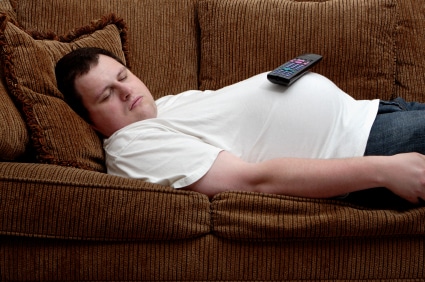Hat tip to Boston Bob for pissing me off and ruining my day.
It seems my life would be much more relaxing and leisurely if I had dropped out of high school, managed to not be employed, and joined the legion of 102 million working age Americans who are not working. I’d have more time to sleep and spend quality time doing sports and leisure activities. According to the infuriating article below, the Average American is sleeping 8.6 hours per day, while working a whole 4.1 hours per day. These are averages because 42% of Americans are in free shit army and the 145 million actual working people have a slightly different distribution of their hours. Here’s my average day:
Fitful sleep – 6.5 hours
Working – 9.0 hours
Cursing at assholes during my horrible daily commute – 2.5 hours
Eating while doing something else – 1.0 hour
Reading stuff that pisses me off – 1.0 hour
Writing about stuff that pisses me off – 2.0 hours
Mindless shit like paying bills, mowing lawns, watering plants, grocery shopping, laundry – 1.8 hours
Satisfying Avalon – 0.1 hours
Relaxing time for myself – 0.1 hours
I don’t think I’ve slept for 8.6 hours straight since I was 19 years old. Now I understand why I never see anyone on the streets of West Philly at 7:15 am every morning on my way to work. They are all sleeping off the exhaustion from all that sports and leisure activity. Someone should paint a mural of these people doing what they do best – sleep.

BLS: Americans–on Average–Sleep Twice as Many Hours as They Work
(CNSNews.com) – On average, Americans spent about twice as many hours sleeping on weekdays in 2013 as they did working, according to the annual “American Time Use Survey” released today by the Bureau of Labor Statistics. However, the sleeping and working hours were not evenly distributed among the population.
Among Americans who do work on weekdays–which is approximately half the civilian population that is 15 and older–hours of sleep and work are approximately equal.
During the 24 hours in a weekday, according to the survey, the total American civilian population 15 years and over slept, on average, 8.48 hours and worked, on average, 4.01 hours. By that measure, Americans, on average, slept 2.1 times as many hours per weekday as they worked.
But Americans, on average, also spent 0.40 hours per weekday on “work-related” activities, which BLS says “include activities that are not obviously work but are done as part of one’s job, such as having a business lunch or playing golf with clients.”
If the 0.40 hours spent on “work-related” activities is added to the 4.01 hours spent actually “working,” the 8.48 hours that Americans spent, on average, sleeping on weekdays was only 1.9 times as much as the 4.41 hours they spent working and on work-related activities.
Among the civilian population 18 years and over, as reported in Table 8 of the survey, Americans slept, on an annual average in 2013, 8.60 hours per day. These Americans, 18 and over, reported working, on average, 3.82 hours per day, and spending a combined total of 4.20 hours per day on work and work-related activities.
After sleeping and working, the next most-time-consuming weekday activity for Americans 15 or older was watching television. On average, Americans did that for 2.57 hours per weekday.
On weekends and holidays, Americans pulled back the average working hours to 1.14 per day (plus 0.13 hours on “work-related” activities)–and cranked up the television watching to 3.24 hours per day.
When all days during both the work week and weekend were combined, Americans, on average, slept 8.74 hours per day, worked 3.14 hours per day (spent another 0.32 hours on “work-related” activities), and watched 2.77 hours of television.
The overall combined average of 8.74 hour per day of sleep was 2.5 times the 3.46 hours of combined average work and work-related activities.
On weekdays, Americans spent, on average, 0.07 hours per day on religious and spiritual activities. On weekends and holidays, they increased that to 0.31 hours per day.
The BLS survey indicates that the average number of hours the American civilian population 15 and older worked was reduced by the large percentage who did not work.
On weekdays, according to the survey, 50.6 percent participated in work. This 50.6 percent who did work, worked an average of 7.92 hours per weekday and engaged in another 0.54 hours of work-related activities, bringing their combined work and work-related activities to an average of 8.46 per weekday. At the same time, these working Americans slept an average of 8.49 hours. Thus, those who typically worked on weekdays, slept and worked, on average, approximately the same number of hours each day.
On weekends and holidays, 20.7 percent of American civilians 15 and older worked, averaging 5.48 hours per day.
On weekdays, 7.1 percent of Americans 15 and older attended class, averaging 5.16 hours per day in the classroom. A somewhat smaller percentage—6.3 percent–did homework and research, consuming an average of 2.99 hours per day doing so.
Those who were not employed or who were 25 years and older and had dropped out of school before earning a high school degree were the Americans who managed to devote the most time, on average, to what the BLS calls “sports and leisure activities.”
“The leisure and sports category includes sports, exercise, and recreation; socializing and communicating; and other leisure activities, says BLS. “Sports, exercise, and recreation activities include participating in–as well as attending or watching–sports, exercise, and recreational activities. Recreational activities are leisure activities that are active in nature, such as yard games like croquet or horseshoes.
“Socializing and communicating includes face-to-face social communication and hosting or attending social functions,” says BLS. “Leisure activities include watching television; reading; relaxing or thinking; playing computer, board, or card games; using a computer or the Internet for personal interest; playing or listening to music; and other activities, such as attending arts, cultural, and entertainment events.”
People who were not employed spent an average of 6.87 hours per day in these activities, according to the survey. That was about 71 percent more than the 4.02 hours that Americans employed full-time could spend on leisure and sports activities.
Among these Americans who were not employed, the “leisure and sports” activity they engaged in least was actually “participating in sports, exercise and recreation.” They dedicated an average of 0.31 hours to this on weekdays and 0.33 hours on weekends and holidays. The “leisure and sports” activity Americans who were not employed engaged in most was “watching TV.” On average, they devoted 3.70 hours to this activity on weekdays and 4.02 on weekends and holidays.
The survey also discovered that the longer someone had spent in school earning academic degrees, the less likely they were to devote time to leisure and sports activities. High school dropouts spent an average of 6.29 hours per day on these activities. That was about 38 percent more than the average of 4.57 hours per day that college graduates spent on leisure and sports activities.
The BLS survey was based on interviews with 11,400 individuals 15 and older conducted by the U.S. Census Bureau during 2013.









